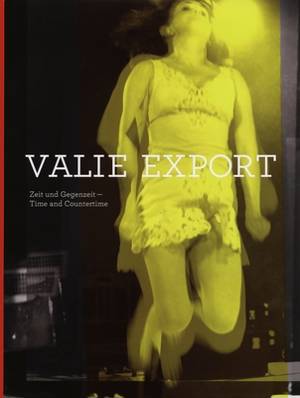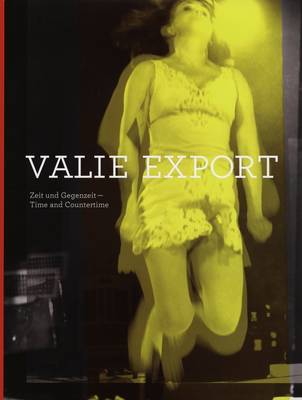
- Afhalen na 1 uur in een winkel met voorraad
- Gratis thuislevering in België vanaf € 30
- Ruim aanbod met 7 miljoen producten
- Afhalen na 1 uur in een winkel met voorraad
- Gratis thuislevering in België vanaf € 30
- Ruim aanbod met 7 miljoen producten
Zoeken
Valie Export: Time and Countertime
Time & Countertime
Sabeth Buchmann, Yilmaz Dziewior, Elke Krasny
Hardcover | Engels
€ 56,45
+ 112 punten
Omschrijving
Having quickly tired of life as an editor and extra in the Austrian film industry, in 1967 Waltraud Hollinger changed her name to Valie Export and plunged into the violent and often blood-soaked world of Viennese performance art and the extremist "Actions" of Hermann Nitsch, Günter Brus, Otto Mühl and Rudolf Schwarzkogler. Like them, Export subjected her body to pain, but where their work was inevitably drawn towards a religious idea of catharsis, Export politicized the inscription of women's bodies in terms of media representation, declaring her project as explicitly feminist. Export soon turned to video to record her performances and began to remove her person from her work, as in her now-famous 1971 video "Facing a Family." Today, across more than four decades of activity, Export has built a large and rigorous oeuvre comprising performance, photography, film and media installations. This volume surveys her career.
Specificaties
Betrokkenen
- Auteur(s):
- Uitgeverij:
Inhoud
- Aantal bladzijden:
- 304
- Taal:
- Engels
Eigenschappen
- Productcode (EAN):
- 9783865608741
- Verschijningsdatum:
- 30/04/2011
- Uitvoering:
- Hardcover
- Formaat:
- Genaaid
- Afmetingen:
- 246 mm x 323 mm
- Gewicht:
- 1918 g

Alleen bij Standaard Boekhandel
+ 112 punten op je klantenkaart van Standaard Boekhandel
Beoordelingen
We publiceren alleen reviews die voldoen aan de voorwaarden voor reviews. Bekijk onze voorwaarden voor reviews.







